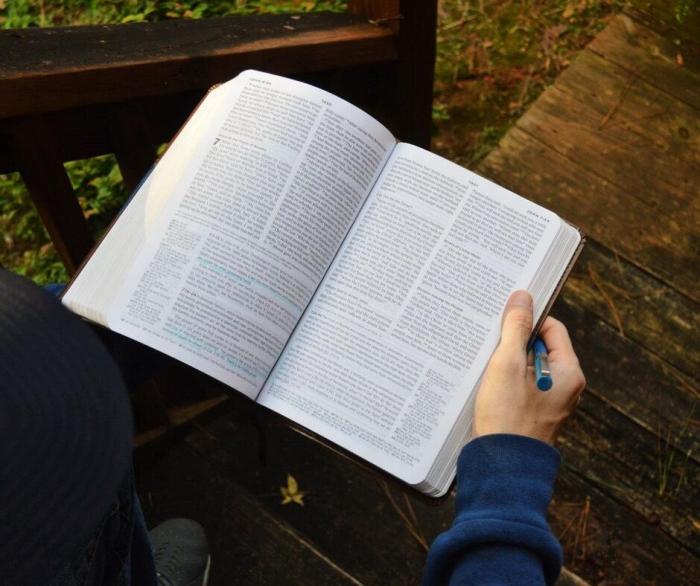Genesis 1-3 | Monday: Lord willing, this will be next week’s sermon text. Moses wrote Genesis somewhere around 1400BC. At that time, likely the most controversial and significant point being made in Genesis 1 was that the God of Israel is the One True Creator and God of all. In a polytheistic culture, this would have been laughable to most people groups.
Joshua 1-5 | Tuesday: The last paragraph of Joshua 5 describes Joshua meeting “the commander of the army of the Lord.” Since Joshua treats this strange warrior as divine, it is likely a preincarnate meeting with the True and Better Joshua, Jesus Himself.
Psalm 1-2 | Wednesday: These two Psalms are really an introduction to the entire Psalter. They help introduce the books two major themes: Torah (Law) and Messiah (the Lord’s Anointed King). A great clip that summarizes this more fully is the Bible Project’s video on the Psalms, found here
Job 1-2 | Thursday: The dispute between Satan and God about Job is this: Do believers follow God primarily because of the blessings He gives us (His stuff) or the blessing He is to us (Himself)?
Isaiah 1-6 | Friday: Isaiah 1-6 is packed! Remember, Isaiah and Micah are contemporaries. Look at how Isaiah uses the word “Woe” throughout these six chapters. See what changes when he uses it in chapter 6.
Matthew 1-2 | Saturday: It’s tempting to run too quickly past the genealogy that begins Matthew’s gospel. Several things are going on here to look out for:
1) In the very first verse of the New Testament, Jesus is seen as the one human being who would finally fulfill all the promises God made to Abraham (including bringing blessing and salvation to all nations; see Genesis 12:1-3) and all the promises God made to David (see 2 Samuel 7).
2) Matthew includes disreputable men and women in his genealogy, telling us Jesus came not for the righteous (as though there were any left to ourselves), but for the sinners.
3) Less obviously, perhaps, Matthew carefully counts the generations from Abraham to David as 14, then from David to exile in Babylon as 14, then from the exile to the birth of Jesus as 14. This is intentional. We have three 14’s (or, six 7’s). Jesus is born on the 7th seven. Leviticus tells us that the year of Jubilee (the year of the release of the captives and cancelation of all debts) comes every seven sevens. The birth of Jesus is marked as the ultimate Jubilee (the ultimate release of captives and cancelation of debts) because His birth arrives as the at the seventh seven. See Leviticus 25:8-12.
Here is how pastor J.D. Greear says it:
Jesus is the ultimate rest
• You have 3 sets of “14.” I know it’s been a while since you have been in math class, but 3 14’s is 6 7’s; which makes Jesus the 7th 7.
• Again, 7 is a really significant number in the Bible. It is the biblical number of completion. It points to rest.
-God rested on the seventh day.
-Every seven years, the land in Israel was supposed to rest—to lie fallow so it could replenish its nutrients.
-Leviticus 25 talks about the “seventh seven year,” called the Year of Jubilee, in which all debts were forgiven in Israel and all slaves were freed.
• When Matthew shows you that Jesus is the 7th 7 he is saying Jesus is the year of Jubilee. In him all debts are forgiven; all slaves are freed.
• He is ultimate rest. Come unto me, Jesus says, all you who labor and are heavy laden and I will give you REST.

Reblogged this on The End Time and commented:
Scott, one of our elders, writes the blog. I loved this short burst of things to ponder as we go thru scripture together as a church.
LikeLike
I love this, very helpful to have these insights and things to ponder in short bursts as I go thru the week. Thank you!
LikeLike
Elizabeth, Mark actually wrote these short bursts to ponder on. I thought they were great too 🙂
LikeLike